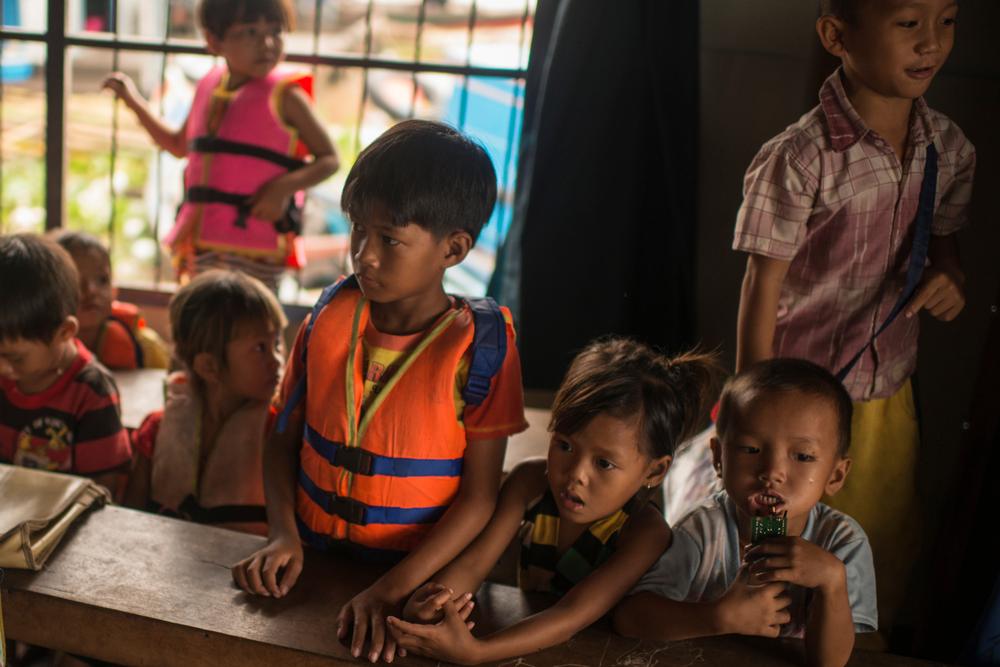 |
| Southeast Asia's largest freshwater lake, Tonle Sap, is home to most of the ethnic Vietnamese living in Cambodia. Vincenzo Floramo/Al Jazeera |
In Pictures: Cambodia's floating villages
 |
| Young children in the village often wear life jackets to avoid drowning. Many ethnic Vietnamese living in floating villages have drowned because they cannot swim. Vincenzo Floramo/Al Jazeera |
Most ethnic Vietnamese cannot buy land so they live in floating villages in Tonle Sap, Southeast Asia's largest lake.
Al Jazeera | 10 August 2014
Tonle Sap, Cambodia - All that 61-year-old Thou Yien
Son owns floats on water. His house is a precarious wooden platform
tied to a bamboo raft and his income comes from a boat that he uses to
catch fish and bring it to the local market. Yien Son doesn't have
anything else, not even Cambodian citizenship. He is one of the 700,000
ethnic Vietnamese living in Cambodia, a country that doesn't consider
them as citizens even though they've lived in the country for
generations.
Most of the ethnic Vietnamese arrived in Cambodia during the French
Protectorate (1863- 1953) to work in administration positions and in the
countryside. In 1975, the Khmer Rouge took power and the Vietnamese
were forcibly deported to Vietnam or killed. During the exile, most of
them lost the papers that proved their Cambodian origin. On their return
in the 1980s, they were considered migrants and became stateless.
Without papers, ethnic Vietnamese cannot buy land and most of them
live in floating villages in Tonle Sap, Southeast Asia's largest
freshwater lake, located deep inside Cambodia. Yien Son, told Al
Jazeera: "I came back because my grandparents and my parents were born
and died here. This is my land."
 |
| Without papers, ethnic Vietnamese cannot find jobs on the mainland and many of them face unemployment. Vincenzo Floramo/Al Jazeera |
But there is one hope for the ethnic Vietnamese. The Khmer Rouge Tribunal opened a new case against the top leaders of the regime, that will judge, among other crimes, the genocide committed against the Vietnamese community, which ethnic Vietnamese civil society leaders hope to use to gain repatriation. This same tribunal just condemned Nuon Chea, the second most senior leader in the Khmer Rouge, and Khieu Samphan, the former head of state, to life in prison for crimes against humanity.
 |
| Small boats are the primary method of transportation in the floating villages. Children use large tubs to cover short distances between houses. Vincenzo Floramo/Al Jazeera |
 |
| About 180 students attend this private floating school where they learn basic writing and reading skills in Khmer and Vietnamese. Most of them leave the school after one year to start helping their fathers with fishing. Vincenzo Floramo/Al Jazeera |


No comments:
Post a Comment